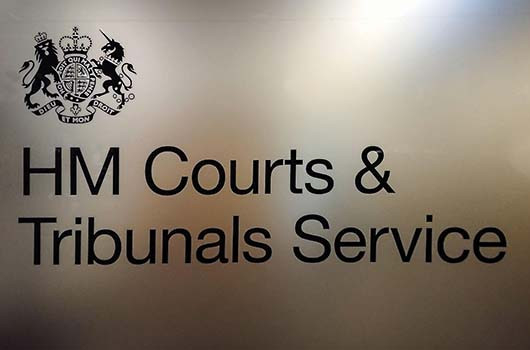
Some judges and senior civil servants are worryingly out of touch. They think claimants want to go it alone and resent legal assistance.Nothing could be further from the truth.They fail to appreciate that individuals who might have civil claims want the reassurance of legal advice and indeed will happily pay for it out of their own pocket. Do they have a viable claim and, if so, what is fair compensation? Both the Master of the Rolls and Lord Justice Birss have lavished praise upon the road traffic claims portal, oblivious of the fact that it is ‘an unmitigated disaster’ as Kerry Underwood described it last month on Twitter.
Changes to the small claims regime for road traffic injuries were predicated on the belief that individuals would overnight become adept at pursuing claims and would go it alone. The 2019 impact assessment was hopelessly wrong in predicting that a third of claimants would represent themselves. Not so. The latest statistics for the quarter ending 31 March show that, despite the removal of recoverable costs, 90% of claims are pursued through legal representation.
Claimants don’t want a dark and dirty instant settlement. They are prepared, if necessary, to wait and get fair recompense. They rely upon a solicitor to reassure them as to whether an offer is decent.
Earlier this year, a minority in the Supreme Court doubted whether airline delay specialists Bott & Co were even providing legal services at all (Bott & Co Solicitors Ltd v Ryanair DAC [2022] UKSC 8). Thankfully, Lord Briggs understood the realities of life. At para [161] he said: ‘In short, the scheme dealt with impediments to access to justice, such as lack of knowledge of the relevant rights, of how to claim and lack of any subjective perception as to likely outcome’. Ryanair subsequently introduced its own compensation scheme, free of charge. However, the number of passengers using the Bott model went up, despite knowing that a third of any recovery would be withheld as payment for services rendered. Read into that what you will. Had I been asked to advise an airline about the establishment of a delay compensation unit, I would have insisted upon an independent entity at arm’s length.
Back & forth
The latest volume of memoirs published by former Supreme Court judge Simon Brown, Second Helpings, gives an exotic example of pithy legal advice. A legal executive was paid substantially more than the partners at the firm where he worked. A client told Mr Brown that on one occasion years before, the bailiffs descended. In a panic, he contacted the executive for immediate advice and was told: ‘Open the door, give them a fiver and tell them to fuck off,’ which did the trick!
The gyrations of HM Courts and Tribunal Services are a wonder to behold. At very short notice, it was announced that from 2 June defendants would be obliged to use the claims portal by virtue of an amendment to PD 51ZB. At even shorter notice, on hipster Twitter it was announced that it wasn’t being brought into effect. The ever excellent Civil Litigation Brief has since reported that the measure has been repealed, so it ended before it began.
Meanwhile, I hear that three achingly talented applicants for the position of deputy High Court judge were rejected out of hand. Given the excellent quality of recent High Court appointments such as Ritchie J, I am bemused by what is going on. I shall be carefully scrutinising the list of new deputies when it appears.
The future of the disclosure pilot
The disclosure pilot scheme expires at the end of this year. Forgive the repetition, but I could never improve upon the description of it in the introduction to the excellent 14th edition of Documentary Evidence by Charles Hollander QC: ‘It would be unlikely to win a popularity contest and is regarded as making a significant contribution to the increase in costs of civil proceedings’. Sir Geoffrey Vos MR, father of the pilot, in a speech delivered to the British and Irish Commercial Bar on 31 March, said: ‘Disclosure is still too much of a profit centre even, or perhaps particularly, in Business and Property cases—despite the disclosure pilot, which has helpfully forced an early concentration on where disclosure is truly needed and where it is not.’
My belief is that the scheme will be continued. Soundings have been taken by the indefatigable Ed Crosse at Simmons & Simmons, and I fully expect a few tweaks in the new year. I see no appetite to extend it into new areas of work.
Inside out
I was the only outsider (for the purposes of The insider column) who attended the first take of Belsner v Cam in February this year. When this three-day hearing starts afresh in the week of 11 July, I sense that I will have company. It will be like the old days when the costs wars were raging 20 years ago. The decision of the Court of Appeal, due to be delivered in mid-October at the latest, could affect every civil litigator in the land. That is why the Law Society was given leave not only to intervene but to be represented by counsel rather than being confined to the usual written representations. They have the benefit of David Holland QC who is utterly in touch and is the happiest company imaginable.
Professor Dominic Regan of City Law School, director of training at Frenkel Topping Group & NLJ columnist (@krug79).












